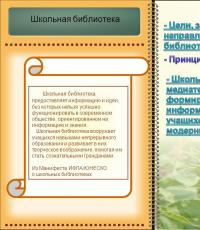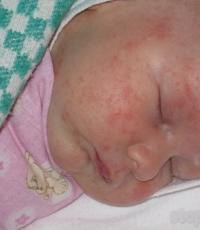How to determine if you need a dog, or four reasons to refuse to have a furry friend. Do you need a dog? Does the dog need
Owners who keep dogs "on soups and pasta" do not even think about the fact that natural feeding is a complex of products that provides a complete and varied diet. However, dogs are far from omnivorous, like many other animals, a pet can eat almost everything, but not digest it. Let's figure out what you can not feed the dog and what the consequences of ignoring the ban can be.
Taking into account the fact that adult dog eats 1-2 times a day, most conveniently, in which you can add the necessary components, supplements and vitamins. However, exclusively soft food leads to damage to the teeth, the appearance of tartar, disruption of the normal process of digestion, so the animal must be given the opportunity to gnaw moslaki or special treats (dried tendons). Traditionally, the diet plan is as follows:
- Porridge containing in finished form 40% meat or offal, cereals and vegetables 30% each.
- 2 times a week, it is recommended to give an omelet or 1-2 boiled eggs.
- Boiled lean fish without bones 1-2 times a week.
- young and large dogs it is necessary to use boiled cartilage and jelly.
- Depending on the pet's preferences and financial capabilities, the dog should receive natural dairy products - every day, every other day.
- Any fruits and vegetables your pet prefers. Cabbage only boiled or stewed.
- Cereals - buckwheat, rice, other cereals that the dog loves, it is advisable to exclude semolina completely.

Naturally, the scheme is not universal and adapts to each pet individually. Many dogs love fish more than meat, and this will have to come to terms. If several animals live in the house, for example, a dog and a cat, the same cooking principle is taken as the basis, but vitamins or nutritional supplements are added separately to the bowl.
Read also: The dog's stomach rumbles: causes, possible concerns
What is forbidden to feed a dog - myths and substantiated facts
Practicing veterinarians often encounter absurd situations - a dog is seriously ill due to an inadequate or "harmful" diet, and the doctor is to blame for treating it poorly. Where unfortunate breeders draw knowledge is a mystery that is not worth wasting time on, a really loving and caring owner is looking for justification for allegations, which is what we will do.
A dog should not be fed pork - a myth!

And now a number of arguments that make you doubt:
Draw conclusions - treat the purchase and preparation of any meat responsibly, this is a guarantee of the health of not only the dog, but the whole family.
Dogs shouldn't be given bones - really!

- Chicken bones, including "soft" broiler bones - even a chewed bone cannot be digested. If the dog has crushed the bone sufficiently, its undigested remains will come out, scratching and irritating the intestinal wall. The swallowed bones remain in the stomach or intestines, which sooner or later will lead the dog to the operating table.
- "Glass" bones, crumbling into fragments - are not digested, but being in the stomach, damage its walls, which leads to gastritis, pain, ulcers.
- Necks, tails, spines - put on the teeth and get stuck, the dog is not able to free himself from the "trap" on his own, choking with saliva or vomit is possible.
- Ribs - A split or cracked rib bone rips open the stomach from the inside, leading to bleeding, internal organ damage, and often death.
Read also: What cereals can be given to dogs: a detailed review

All types of meat by-products containing bones or their fragments are only suitable for making broth. After boiling, be sure to remove the bones from the broth and only after that pour the porridge. The only exception to the rule are moslaki, the ends of the joints, round, hard bones covered with an articular sheath. When buying a moslaki dog, consider:
- Moslak should not completely fit in the pet's mouth.
- There should be no cracks on the articular membrane.
- Buy only fresh moslaki - no more than 24 hours should pass from the moment of slaughter.
- Do not purchase by-products from spontaneous traders, demand to present documents on the conduct of a veterinary examination.
When a dog chews on a moslak, do not leave it unattended. A pet that is too stubborn can get its chewing teeth stuck, trying to free itself, the animal can damage or break its jaw.
Remember: if you are not sure about the safety of a product, do not give it to your dog. If your dog has eaten something that you are not sure about, do not be too lazy to consult a veterinarian.
Below is a list of foods that can and should not be consumed by dogs. It is not exhaustive and some points are controversial. If you know something that is not mentioned in the article, let me know in the comments.
We will tell you in detail about each product below, and now - infographics.
Can a dog eat bananas? Yes
Bananas are perfectly safe for dogs as long as the animals don't eat them in bunches. Banana contains substances that are difficult for dogs to obtain from other foods: vitamins B, C and potassium.
Bananas are rich in fiber, which is necessary for dogs no less than humans. Animals that have digestive problems especially need fiber.
Worth knowing: Feeding too many bananas to your dog can cause constipation. But in moderation, bananas are a great addition to your diet.
Can a dog eat apples? In moderation
An apple contains many vitamins and minerals. It is also a fairly hard and fibrous food that is good for dogs' teeth.
Why in moderation? The seeds, core and stem of an apple contain cyanide. It is a poison for both humans and dogs. If a person can separate the harmful parts, then the dog eats the whole apple. This is the problem.
You can give your dog apples, removing all the harmful parts, but you do not need to feed them. The basis of the diet of any dog should always be meat.
Can you give your dog an avocado? Not
Avocados contain the toxic substance persin. Horses, birds, rabbits do not tolerate it very well.
Dogs do not have such severe problems with persin tolerance, but they can still get an upset stomach if they eat enough avocados. In some countries, this fruit is listed as harmful for dogs.
If your dog accidentally eats one avocado, then there is no serious reason to panic. Everything can be limited to diarrhea and vomiting. If we are talking about a large number, contact your veterinarian to be safe.
A handful of popcorn won't hurt a dog. And yet, feeding an animal popcorn is not the most best idea. Unopened nucleoli can easily enter the dog's mouth. They can provoke an upset stomach, less often - lead to problems with the teeth.
There is nothing good about popcorn for dogs. Why risk it then?
Can you feed your dog carrots? Yes
Carrots are a healthy snack for your pet. It is included in many dog foods, because carrots contain beta-carotene, which affects the vision of the animal.
This vegetable is also essential for the skin and coat of a dog, so it should be included in the diet of animals with long hair.
In addition, dogs like the shape of a carrot - a stick that you can not only chew on, but also eat. Dogs eat it both raw and boiled.
Do not give a lot of carrots to your pet if he has diabetes, because they contain sugar.
Can you feed your dog grapes? Not
Eating grapes can lead to kidney failure in dogs. To date, no one can explain what this is connected with, but the fact takes place.
But do some owners use grapes to encourage their pets during training? If you have been doing this for a long time, then there is no reason to worry.
Some dogs can eat grapes without harm to health, while in others it provokes serious complications. No one can explain the reason for this phenomenon.
Can dogs eat mushrooms? In moderation
The only mushrooms that are safe for your pet are the ones you get from the supermarket. Never give your dog raw mushrooms or mushrooms you picked from the forest. In the absence of experience, you can easily confuse edible mushroom with poisonous.
The best advice is to completely remove mushrooms from the dog's diet so as not to risk it again.
Can you give your dog almonds? Not
Dogs should not be given nuts in any form. And almonds are the most dangerous nut for a dog. Although one or two things will not cause serious problems, it is still better to exclude them from the pet's diet. The digestive system of dogs is not designed to digest nuts.
Can dogs eat peanut butter? Certainly!
Dogs shouldn't eat nuts, but peanut butter can. Why? Peanuts are not a nut, but a plant of the legume family. Dogs love peanut butter.
Peanuts contain many nutrients that are beneficial for dogs: vitamin B, vitamin E, and niacin. It also contains fats that are essential for the animal's digestive system.
Can dogs eat blueberries? Certainly!
Blueberries contain a ton of health benefits, including vitamins A, B, C, E, and K. They're loaded with fiber and a whole host of antioxidants. This berry is often included in the best dog food. But do not overfeed your pet with blueberries, a handful is enough in the morning and evening.
Celery is a food rich in nutrients, but it is also very hard and stringy.
If the dog chewed food thoroughly, then there would be no problems. But most pets swallow food in large chunks. And it is difficult for unchewed celery to pass through the digestive tract of an animal.
Can dogs eat onions or garlic? Not
Too much garlic and onions can poison your pet. The hotter the garlic, the more poisonous it is to dogs.
If your dog grabbed a piece of garlic or onion that fell off while you were making the soup, then there is nothing to worry about. You need to eat enough onions for this to lead to a problem.
Can dogs eat rice? Certainly
Cooked rice is an excellent food for dogs and can be found in many dog foods. If you're making your own dog food, add rice as it's your pet's source of carbohydrates.
Rice must be well cooked! And be careful if your dog has diabetes: rice has a high glycemic index.
Can dogs eat fish? Certainly
Boiled fish is one of the best foods for dogs because it is lean meat. Fish is rich in fatty acids that are difficult for a dog to obtain from other foods.
Bread is not the healthiest and most nutritious food for a dog. In some cases, it can even be harmful.
And never give the dogs dough. It expands in a warm environment, which is the stomach of the animal. Take into account the fact that the dough can literally double in size, and this can cause problems such as distension of the stomach, loss of coordination, and even coma.
Can dogs drink beer? Not
Ethanol (the alcohol found in beer) and hops are toxic to dogs.
Can dogs eat strawberries? In moderation
Strawberries fall into the same category as blueberries: they are completely safe for dogs in moderation.
This berry contains a lot of fiber, vitamins and antioxidants. All this is good for a dog as long as its diet is based on meat and not fruits and vegetables. In addition, you must be completely sure that you have removed all the stems and leaves, because they can harm your pet.
And, of course, you should not give dogs everything that a person usually eats strawberries with: sugar, chocolate, whipped cream.
Can dogs eat pumpkin? Certainly
In the dog world, pumpkin is a superfood. Pumpkin is used to treat stomach ailments, including constipation and diarrhea. It is rich in beta-carotene, which is essential for vision.
However, don't feed pumpkin to your dog. Vitamin A, which is contained in it, in large quantities can only harm. It is also undesirable to give dogs raw pumpkin.
Can dogs eat cheese? In moderation
Most dogs love cheese just as much as humans do. It is harmless to your pets. Some cheeses are especially rich in protein.
Some dogs are said to be lactose intolerant. And almost all the cheese you can buy in the supermarket is processed and contains chemicals that are not recommended for dogs.
If you're going to give your dog cheese, it's best to opt for a low-fat (or low-fat) variety.
Can dogs eat lettuce? Certainly
Most greenery is just as suitable for dogs as it is for humans. Greens are often added to dog food because they are high in vitamins A, K and C.
Spinach contains oxalate, which is harmful to dogs. However, for it to have a negative effect, the dog must eat a large portion of spinach.
Some types of pepper will not cause harm. For example, green peppers are mild and contain many vitamins and minerals. But hot peppers can cause indigestion. You just need to understand that the dog's body is not adapted to cope with spicy food.
Can dogs eat pears? Certainly
We treat pears the same way we treat apples. Pears are a great source of nutrients, but portions should be small and the seeds, cuttings, and core should be removed.
Can dogs eat chocolate? Not
You should always remember that dogs should not eat chocolate. It contains caffeine and theobromine, both of which are poisonous to your pets.
The darker the chocolate, the more harmful it is to dogs. All of its species should be excluded from the dog's diet. Keep your dog away from all this.
Corn is one of those foods that are not capable of causing harm in small quantities. However, it should not be a significant part of a dog's diet.
Corn causes a sharp jump in blood sugar. In some cases, it causes allergic reactions and is difficult to digest. Moreover, this product has low nutritional value and is not a good source of energy. Therefore, corn is not the best food for a dog.
Can dogs eat hot dogs? In moderation
Meat is the most important ingredient in a dog's diet. The hot dog includes meat and is suitable for dogs. But do not forget that processed and low-quality meat is added to hot dogs. In other words, a few bites of a hot dog won't hurt your dog, but don't overdo it or make a habit out of it.
Can dogs eat pomegranate? Not
Pomegranate is very useful for humans, but not for dogs. In fact, most dogs get sick immediately if they eat it. The reason is that the pomegranate contains a lot of seeds that are difficult to digest. Dogs that eat it experience abdominal pain and this is accompanied by vomiting.
And the last thought...
Never feed your dog food that you are not sure is safe. And contact your veterinarian immediately if something goes wrong.
For many centuries, dogs have been our friends, helpers, protectors and companions. Perhaps one cannot find a more devoted and sympathetic friend than a dog, and one cannot but agree with this. However, we still have to ask ourselves the question, do we need a dog?
What is it, a whim of a bored city dweller, or a need that we cannot do without? What can we gain and what will we lose? Of course, love for animals is a link between us and nature, it gives an understanding of something supreme and irreplaceable.
Are all members of your family ready?
Many people simply cannot imagine themselves without a dog, however, when we ask the question of whether it is worth getting a dog, most often we hear a negative answer. A dog in the house is, first of all, responsibility and care for a living being, and this care should be shared between everyone living in this family. And if at least one of the family members does not love her, then such a dog will be unhappy. In addition, the animal will become the main object of contention and trouble.
Are you ready for additional financial expenses?
And how are you with personal time, are you ready to spend it on a dog?
Do you like to sleep? Well, no, forget it! You won't have to sleep here for long! Every morning, in any weather and no matter how you feel, you should get out of your warm bed and go outside to walk your four-legged friend! And this is only in the morning ... But the dog must be walked at least 2 times a day, and if it is a small puppy, then all 6 times!
In order for your dog to grow up healthy and cheerful, it simply needs to receive maximum exercise. The main thing here is to remember what breed your pet belongs to, since each of the breeds has its own rules and regulations. If you still decide to get yourself a dog - choose a breed that matches your character, image and lifestyle.

Everything is simple here: if you are a homebody, then the dog must also be indoor breeds; if you like long walks or long hikes, then hunting and service dogs are suitable for you. The main thing is that there is maximum benefit, both for you and your pet. Before you buy a puppy, get acquainted with the breeds of dogs or consult with an intelligent specialist, and only then make your choice!
And how do you feel about damaged shoes, mess and dirt?
There is a puppy in your house! Be prepared for a mess, but don't worry, it won't last long. You just have to wait until he becomes an adult, but do not neglect education. After all, if you don’t teach him the necessary commands and rules in time, then such a mess will “settle” in your house forever! By the way, here, too, a lot depends on the breed and on your perseverance, as well as patience.
To whom will you leave your pet during business trips or vacations?
Oddly enough, but many people, when getting a dog, do not think about what they will do if they have to leave. After all, a dog needs constant care, after all, she needs communication! Can you afford to have a four-legged friend if you have to leave home often?
Do you have a person (friend) who will take care of your pet while you are away? This is very important point which you must clearly understand! Remember that there are dogs that do not tolerate long separation from their owner!

And after all of the above, you still decided to get a dog - then love it, take care of it, try to understand its needs and never betray it! And she, in turn, will reciprocate and give you a lot of love and positive emotions!
Answers to popular questions of dog breeders that begin with the words "Can a dog ..?".
Can dogs eat dry food? Definitely yes. Remember one important point, the dog (also applies to cats) needs to be fed OR dry food with water OR homemade food, otherwise problems with digestion and pancreas may develop.
Can a dog be washed? The dog needs to be washed. In urban areas, even more often - 1-2 times a week or more often, if required. However, grooming different breeds not the same.
Can dogs eat chicken bones? Dogs' stomachs are definitely adapted to digesting bones, but gnawing on bones damages tooth enamel, wears down teeth, and leads to caries. Also, large bone fragments can get into Airways dogs or get stuck in the throat.
Can a dog eat raw meat? Any veterinarian will advise giving boiled food to dogs rather than raw. Raw food is useful because it preserves everything useful material, which disappear with cooking, but bacteria that could be there for one reason or another also disappear. Boiled food is considered safer, but each owner determines for himself how to feed a domestic dog.
Can a dog be given porridge? Not all cereals can be given to a dog for consumption, for example: pearl barley (the likelihood of an allergy), semolina (a solid carbohydrate, a very small part of the useful elements), corn (not digested by the body of dogs), millet (hard to digest, there is a possibility of intestinal volvulus). You can give such cereals as: rice, buckwheat, oatmeal (in large quantities causes stomach upset).
Can a dog eat watermelon? It is possible, but in small quantities. The benefit of watermelon lies in its diuretic property, which can rid the dog's body of toxins. However, dogs will need to go to the toilet more often. It is contraindicated to give watermelon in case of violations: urine outflow, diabetes, pancreatitis, flatulence, kidney stones, diarrhea.
Can dogs be given milk? Possible, but not recommended. Most often, milk is given to puppies up to 1.5-3 months (depending on the size of the breed). Older dogs may have a dairy allergy or indigestion accompanied by vomiting and diarrhea.
Can you shampoo your dog? It is possible, but specialized for dogs. Some owners wash with laundry soap and respond well, but this method may not suit the dog and ruin its coat. Be very careful when choosing a cleanser. And of course it depends on the breed of the dog. The more exotic the breed, the greater the chance of spoiling the wool with soap (over time).
Can a dog eat cheese? Dogs can only eat hard cheeses, not fatty, lightly salted, in small volumes, otherwise problems with the liver and pancreas may occur. If a large piece of cheese was eaten, then expect diarrhea to appear. Do not give to dogs: smoked, pickled, gourmet, melted, moldy cheeses.
Can dogs eat eggs? Boiled and raw eggs, certainly useful for dogs, but in any case do not give fried eggs. Eating fried eggs can cause pancreatitis.
There is a widespread belief that "a dog needs to give birth once." That it is necessary for the prevention of various diseases and for the mental health of the dog. Let's see if this is true or myth?
I must say right away that I am a supporter of everything natural and natural. Yes, nature provides that the dog reproduces offspring. And this is a natural process.
Therefore, the most natural option is when the dog gives birth periodically. Notice! This is not about the fact that a dog gives birth only once in a lifetime. And about the fact that she periodically once a year and a half repeatedly bears, gives birth and feeds puppies. After all, that is how nature intended it. Not “to give birth once”, but to do it all the time. If you can give the dog the opportunity to periodically reproduce puppies, and you have where these puppies can then be safely attached - great, then in your case all the factors have converged in the most favorable way.
In addition, playing with puppies is a joy and pleasure not only for children, but also for adults. I really love to give birth to dogs and to mess around with puppies.
And now let's talk about such a common opinion "A dog needs to be born once." And although a lot of articles have been written on this topic, this question is asked to me very often.
I always urge you to use common sense.
Let's figure it out. Someone came up with a myth that if a dog gives birth once, it will save her from further possible problems in future. Someone came up with the idea that if a dog gives birth once, then in the future it will avoid such troubles as inflammatory diseases of the uterus and ovaries. The owners hope that the dog, which “gave birth once”, will not experience such troubles as mammary gland tumors.
Alas and ah! I will disappoint you. Dogs that have given birth to puppies even more than once, in the same way, face pyometra, endometritis, and tumors.
So, unfortunately, single births (and double births too) do not at all protect the dog from possible problems in the future.
Because as a result, both giving birth and nulliparous dogs get sick.
Another important point that I would like to mention. If your dog repeats from estrus to estrus (false puppies), the birth of puppies will not change anything in the future. In that estrus, when you mate her, she will give birth, and she will have a real lactation - she will feed the puppies. And on the next estrus, a false pregnancy will happen again. Unfortunately.
In addition, as a practicing veterinarian, I often encounter complications during childbirth. Yes, in most cases, childbirth and the postpartum period in dogs are normal. But it also happens that a perfectly healthy young dog that has had a good pregnancy cannot give birth normally. The reasons are different: there is only one puppy and it is very large, volvulus of the uterine horn, weak labor activity. And ends with a caesarean section. And as a result, the owners who wanted to have puppies for the dog “for health” receive serious financial costs, because the operation and postoperative care cost money. And there are many, many more worries, because when a mother-dog has a seam, puppies cannot be kept with their mother, and every 2 hours they must be fed. And after the operation, the mother-dog is prescribed an antibiotic, and the owners get upset stools in puppies with a high degree of probability. Sometimes, during the operation, a decision is made to remove the uterus and ovaries. In this case, the mother dog often loses milk. Added to the above are the costs of powdered milk for puppies + time spent on artificial feeding (the owner is forced to take leave to grow and feed puppies).
My close girlfriend Luda once bred her boxer Patt, having heard enough that “for health, a dog needs to be born once.” Patt died on the operating table during a caesarean section. Perhaps it was the unprofessionalism of the doctor who performed the operation. I don’t know the true cause of the dog’s death - we met Luda after that tragic event- when it was necessary to feed and raise puppies without a mother dog with all the ensuing difficulties and questions. So the dog Petya "once give birth" obviously did not add health.
After all the above passions, let me remind you once again that I am for natural processes (see the first paragraph).
Well, at the end of the article. Can a dog that hasn’t had a “once birth” in his life live happily ever after? The answer is maybe! Moreover, the probability of meeting / not meeting diseases “in a feminine way” is approximately the same for her as for a dog who happened to “give birth once”. The life expectancy of nulliparous dogs is the same as that of those who have given birth.
So you can, with a clear conscience, forget about the myth "a dog needs to give birth once for health." And you can allow yourself and your dog to live peacefully, happily and serenely.
Read about in the next article.





